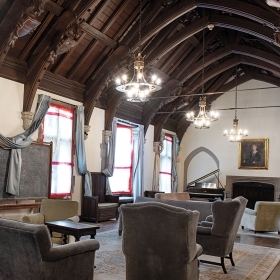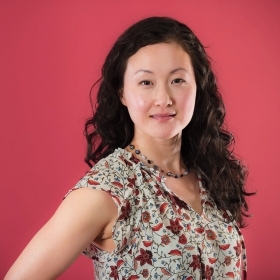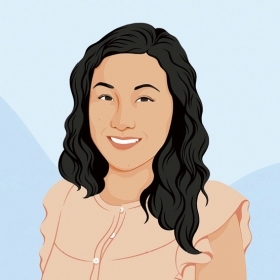“Sometimes, fundamental concepts such as connection, boundaries, respect, the gracious resolution of conflicts, and a sense of community have to be learned.”
We intend for a Wellesley education to be transformative. That means making sure our students learn as much as possible outside their classrooms as well as in them, through a student experience that is at once joyful and profound. We want our students to feel safe and supported—as well as challenged to grow socially, emotionally, and intellectually by interacting with their remarkable peers.
However, the skills to make the most of the residential college experience are not always self-evident, especially after the social isolation of the COVID-19 pandemic. As Helen Wang, associate dean of residential life and community, puts it, “We can see a lot of closed doors in the residence halls.’’ Sometimes, fundamental concepts such as connection, boundaries, respect, the gracious resolution of conflicts, and a sense of community have to be learned.
With Helen’s leadership, Wellesley began taking a curricular approach to residential life five years ago: identifying what it is that we want our students to discover at Wellesley and then designing the entire residential experience around these learning goals. This approach is rather unusual: Of Wellesley’s 38 peers in the Consortium on Financing Higher Education, a group of highly selective private liberal arts colleges and universities, only two have implemented a residential curriculum.
Wellesley’s particularly robust residential curriculum has three fundamental learning goals:
- Self-awareness allows our students to grow by learning about themselves and the roles they want to take on in the world.
- A sense of belonging—each student’s sense that they matter deeply to their peers and to the larger Wellesley community—supports their emotional health and academic success and empowers them to become their most authentic selves.
- Inclusive excellence helps the members of our highly diverse student body to connect across races, ethnicities, gender identities, socioeconomic backgrounds, and experiences—and to appreciate how much these differences enrich their own perspectives.
Our wonderful community directors—the live-in professionals in our residence halls—help us to realize our learning goals through formal community engagement programs as well as informal activities, such as Don Leach’s beloved bread baking classes. They are assisted by our student leaders, both our house presidents and resident assistants. We give these student leaders serious training in interpersonal communication, crisis response, residential program design, and community building—and then they add the fun.
“Sometimes, fundamental concepts such as connection, boundaries, respect, the gracious resolution of conflicts, and a sense of community have to be learned.”
Whether our residential teams are keeping alive the Wellesley tradition of inviting faculty to tea in the residence halls, or establishing a new tradition of students posting notes of gratitude on each other’s doors, or throwing a living room dance party, or hosting a night of camping on the lawn—they are successfully building small but powerful communities of roommates and neighbors. In total, our teams offered nearly 200 residence-based programs of all kinds last year. And we measure the results of these efforts against the residential curriculum’s defined objectives.
The fact that 70% of our students now report engaging in their residence halls is very meaningful—an encouraging sign of success. At Wellesley, our programs help students question their own perfectionism and its social expression in call-out culture. They learn to forgive each other’s fumbles as they reach across differences, to grow comfortable with discomfort, and to build warm and supportive social networks that turn strangers into friends.
These are skills that are valuable throughout life. We want our students to thrive after they leave Wellesley. By helping them understand who they are and how they can relate to others, we are preparing them for lives of leadership, purpose, and connection.


